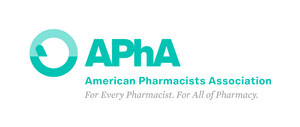WASHINGTON, Jan. 18, 2011 /PRNewswire-USNewswire/ -- The American Pharmacists Association would like to remind the public about the importance of speaking with their pharmacist during cold and flu season. A pharmacist can help patients with such things as getting a flu shot, identifying the differences between a common cold and the flu, suggesting the best over-the-counter medications and offering a recommendation when a health care provider should be seen.
(Logo: http://photos.prnewswire.com/prnh/20100820/APHALOGO-a)
The common cold and influenza are two of the most easily transmittable diseases in the United States. Although the common cold is usually mild, with symptoms lasting one to two weeks, it is a leading cause of doctor visits and missed days from school and work. Typically, children suffer from five to seven colds each year and adults from two to three. According to the CDC, on average 5% to 20% of the U.S. population becomes ill with influenza, more than 200,000 people are hospitalized and more than 24,000 people die from seasonal flu-related complications.
Knowing whether you have the common cold or the flu can be complicated, and the common symptoms are sometimes indistinguishable:
Common Cold |
The Flu |
|
|
|
|
|
|
|
|
|
|
|
|
|
|
|
|
|
|
|
|
||
A pharmacist can discuss your symptoms with you and offer advice on the best course of action. If a patient has the flu, and it is still within the first two days, a pharmacist can advise the patient and offer solutions including further evaluation and treatment options that may include prescription antiviral therapy from an authorized prescriber. If a patient has a cold, viral sinus infection or has past the two-day window with influenza, a pharmacist can suggest the best over-the-counter medications to fit his/her symptoms.
Optimizing Your Pharmacist's Over-The-Counter Medication Suggestions
- Discuss the symptoms you are trying to treat, and the duration of those symptoms, with your pharmacist.
- Provide your pharmacist with a list of all the medications – prescription, over-the-counter and herbal – you are currently taking and any over-the-counter products you have already used and the results achieved.
- Remember that sometimes, the best medicine is none at all. Your pharmacist may recommend just a few days of rest, adequate hydration and regular, healthy meals.
- Provide the age and weight of the patient to your pharmacist. This is especially important with children's products, as formulations are different depending on the weight of the child.
- Read product labeling, take the medication exactly as directed, learn of possible side effects, and ask your pharmacist what should be avoided while taking the medication.
- Watch for duplicate ingredients. If you are giving your child more than one OTC medication check the active ingredient(s) used in each medication to make sure you are not giving your child more than one product with the same active ingredient.
- Do not use a kitchen spoon to measure liquid medications. Obtain appropriate medication administration aids (i.e. droppers, syringes, spoons, etc.) and ask the pharmacist how to use them properly.
- Don't give medications in the dark. Turn on the lights if your child needs medication at night. Do not give medication to a child who is not fully awake.
- Remember, most OTC medications are for temporary relief of minor symptoms. Contact your pharmacist or health care provider if your condition persists or gets worse.
- The flu, common colds and most other upper respiratory infections are caused by viruses and are NOT treated with antibiotics. An antiviral will reduce the symptoms of the flu if received within the first 48 hours of symptom onset.
- There is still time to protect your family from the flu; the CDC recommends all persons six months or older receive an influenza vaccine. The vaccine is available throughout the flu season or as long as supply lasts. Make sure to speak with your pharmacist about your vaccination needs.
APhA encourages consumers to follow good health practices to prevent the spread of influenza, colds and other transmissible illnesses. Consumers are encouraged to cover their mouth and nose during a cough or sneeze, avoid touching the eyes, nose or mouth, and wash their hands frequently. Other good health practices to follow include using alcohol based hand sanitizer, getting plenty of regular sleep and avoiding work, school or other places of close contact when you are sick.
About the American Pharmacists Association
The American Pharmacists Association, founded in 1852 as the American Pharmaceutical Association, represents more than 62,000 practicing pharmacists, pharmaceutical scientists, student pharmacists, pharmacy technicians, and others interested in advancing the profession. APhA, dedicated to helping all pharmacists improve medication use and advance patient care, is the first-established and largest association of pharmacists in the United States.
SOURCE American Pharmacists Association
WANT YOUR COMPANY'S NEWS FEATURED ON PRNEWSWIRE.COM?
Newsrooms &
Influencers
Digital Media
Outlets
Journalists
Opted In






Share this article